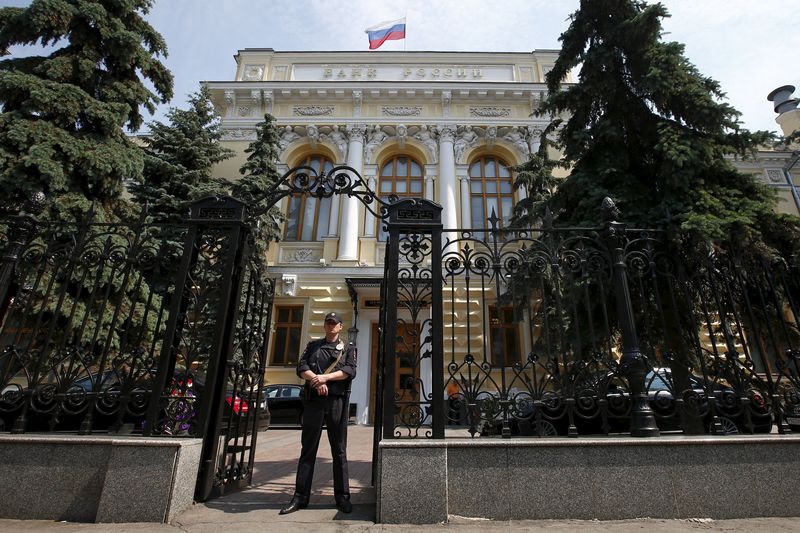US LNG exports surge but will buyers in China turn up?
By Geoffrey Smith
Investing.com -- The ruble eased off a four-year high on Thursday, the Russian central bank cut its key rate by three percentage points to 11% and flagged the possibility of further cuts at its next meetings.
The CBR said it was reacting to a "significant slowdown in the current pace of price increases," which had gone beyond its expectations. As of May 20, it estimated that annual inflation was running at 17.5%, down from 17.8% in April.
The bank said that the easing of inflation and of expectations for its future course had allowed it to relax capital controls "somewhat," but didn't announce any fresh measures on Thursday.
The CBR had put strict limits on the amount of rubles that could be converted into foreign currency at the start of Russia's war in Ukraine, which triggered a broad rush for dollar and euro by both households and businesses. While it has relaxed the controls it placed on the banking system's hedging activities in the last two weeks, the limits on non-financial entities remain largely in place.
As of 5:35 AM ET (0935 GMT), the dollar was up 4.8% at 62.15 rubles, its highest in a week. Earlier in the week, it had fallen as low as 55.83 rubles, its lowest since February 2018. The ruble has now doubled in value from its low during the initial war-driven panic.
The rate cuts will help revive credit growth, which had nearly ground to a halt since the start of the war. Preliminary data from consultants Frank RG cited by Forbes at the weekend suggested that new mortgage lending had fallen by two-thirds in April.
The ruble's surge has primarily been a function of the country's current account surplus, which has widened sharply since the war started. Revenues from exports of oil and gas have surged as the war itself has driven markets to incorporate a big geopolitical risk premium into prices. At the same time, analysts at the Washington-based Institute for International Finance estimate that imports fell 50% in April, as western companies rapidly scaled down their businesses in Russia. Central bank Governor Elvira Nabiullina has said she expects the economy to undergo a period of "structural transformation" from the second half of this year as prewar inventories of key imports are depleted.
The central bank said that external conditions for the economy "remain difficult." Even without a full boycott of its oil by the European Union, the sharp reduction in regional demand has caused domestic crude production, the backbone of the economy, to fall by over 1 million barrels a day in April. Deputy Prime Minister Alexander Novak has said that it should rebound by more than 200,000 barrels a day this month, and recover further in June.
The government expects the economy to contract by 7.8% this year.
